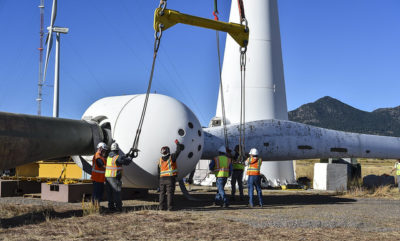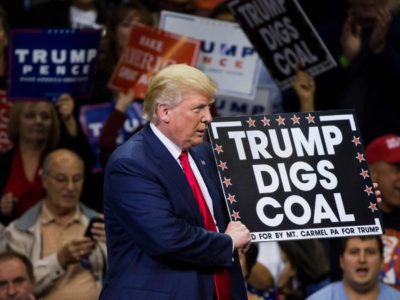Understanding the Green Energy Transition: A Conversation with David Spence about EnergyTradeoffs.com

UCLA Professor of Law and Legal Planet contributor William Boyd recently interviewed David Spence of the University of Texas School of Law about EnergyTradeoffs.com, a new web site that explores some under-discussed aspects of the green energy transition.
BOYD: Tell me about EnergyTradeoffs.com. Why this web site and why now?
SPENCE: EnergyTradeoffs.com is aimed at people who produce or read law and policy scholarship about the transition to a greener energy mix. We (the site organizers) saw that the public debate over clean energy and climate was often ignoring or assuming away some of the tradeoffs associated with the green energy transition, particularly issues associated with cost (and distribution of costs) and energy reliability. So the web site features conversations with authors and experts whose work grapples with these issues, and does so in ways that avoid the temptation to treat tradeoffs as easy or painless. So the web site is an attempt to inject a fuller appreciation of those tensions into the energy transition discussion.
BOYD: Can you give a few concrete examples of the kinds of tradeoffs you are talking about?
SPENCE: There is much more detail about tradeoffs on the web site, but (for example) a future electric grid comprising more renewable energy will require new and different ways of ensuring a reliable energy supply, which in turn will impose more out-of-pocket costs on ratepayers. So will increased reliance on more expensive distributed resources like rooftop solar power. Similarly, electrifying homes and transport to promote low-carbon energy consumption makes homes and cars more expensive. All these things may be more than offset by the environmental harm they avert, but in a time of heightened economic inequality choosing to increase the price of basic human needs —energy, housing, transport — deserves more attention as part of the process of crafting a green transition.
BOYD: Are you saying that proponents of rapid decarbonization need to temper their ambitions and slow down because these tradeoffs are so difficult?
SPENCE: No. The tradeoffs are difficult, but everyone involved with this web site agrees that climate change is imposing enormous costs on society, and that that necessitates a transition to an energy mix characterized by drastically-reduced (or net zero) carbon emissions. We just think that it is important to discuss openly (and thereby to understand) the difficult value and distributional choices implicit in a rapid transition, because if we don’t we are likely to choose a policy path that turns out to be less effective or more expensive than need be. Bad decisions may even produce a backlash, which could set back progress.
So EnergyTradeoffs.com is intended to be a place for people who want to explore, and think critically about, those tradeoffs.
BOYD: Why do you think these tradeoffs are sometimes overlooked?
SPENCE: There are sensible political reasons why people might not want to talk openly about tradeoffs. Discussing the devil-in-the-details can undermine the task of building support for a policy goal. And “have your cake and eat it” narratives are a lot easier to sell — for politicians seeking votes, for businesses seeking clients, or web sites seeking clicks.
It may also be true that when the politics of a policy discussion are fraught, or emotionally-charged, facing the inconvenient truths associated with the issue is just that much more difficult for everyone, including academics. This manifests in all sorts of ways. We care about climate change and its effects, which makes discussing the costs of addressing it uncomfortable (cognitive dissonance). We value our own prior conclusions about and analyses of the issues (confirmation bias), and agreement with our friends and members of our social networks (cultural cognition and groupthink).
These natural human tendencies sometimes lead us to suspend critical thinking about the ideas we want to champion. We should accept (and try to recognize) that problem not just in others but in ourselves as well. Unfortunately, the intellectual humility that this requires is sometimes in short supply in today’s fractured, polarized and emotional political environment, particularly in semi-anonymous online discussions.
BOYD: So you think the digital media environment is part of the problem?
SPENCE: Yes, but in a perfectly understandable way. For the first few decades of the modern regulatory era, the three broadcast networks and local newspapers fed viewers and readers carefully-curated news based upon journalistic standards that emphasized verifying and re-verifying facts, and aspiring to objectivity.
Today, the very idea of objectivity is viewed with suspicion. Traditional news outlets compete for readers and clicks with ideological journalists, press releases, and fake news bots. And all that information flows to us by way of news aggregators, and links sent to friends via online social communities. This new system of acquiring and digesting (socially) new information tends to skew our understanding of the world, as algorithms feed us more of what we like and less of what we dislike.
We form and harden our beliefs much more quickly in this environment. In the debate about the green transition, this magnifies cognitive biases, and makes it more difficult to debate tradeoffs respectfully. It is instead easier to ascribe malicious or otherwise nefarious motives to those whose policy preferences or understanding of the issues differs from ours.
BOYD: How then does EnergyTradeoffs.com try to address these problems?
SPENCE: In a fairly focused or narrow way, frankly. We are merely trying to engage experts — scholars and policy wonks who are involved (by vocation or avocation) in the collective project to transition our energy system toward net zero carbon emissions. We hope they will browse the conversations and associated written work on the site, and come away with a broader appreciation for the complexity of the challenge, and for the need to engage differing points of view about how all these tradeoffs ought to be managed.
We will be adding work by law and policy scholars to the site as our time and resources allow. This fall we also plan to roll out a membership-based discussion board dedicated to the civil exchange of expert views on these tradeoffs issues. This is an experiment. Ideally, a diverse group of experts will come to the board to exchange views on tradeoff issues. But time will tell if that actually happens.
BOYD: Thank you so much David for sharing this with us, and for all your hard work in conceiving and implementing this exciting venture. I know many of our Legal Planet readers are very interested in these issues and will find much to think about if they spend some time on EnergyTradeoffs.com.
Reader Comments
One Reply to “Understanding the Green Energy Transition: A Conversation with David Spence about EnergyTradeoffs.com”
Comments are closed.







Here are some trade-offs:
More than $20 billion annually in direct fossil fuel US subsidies, and more than $600 billion annually in indirect social costs.
More than $1.8 trillion in direct military spending in Iraq and Afghanistan wars to date, and more than $4 trillion in indirect military spending.
More than $260 billion in damage from extreme hurricanes Harvey, Maria and Irma in 2017.
More than $90 billion in damage from extreme weather events in 2018.
Etc., Etc.